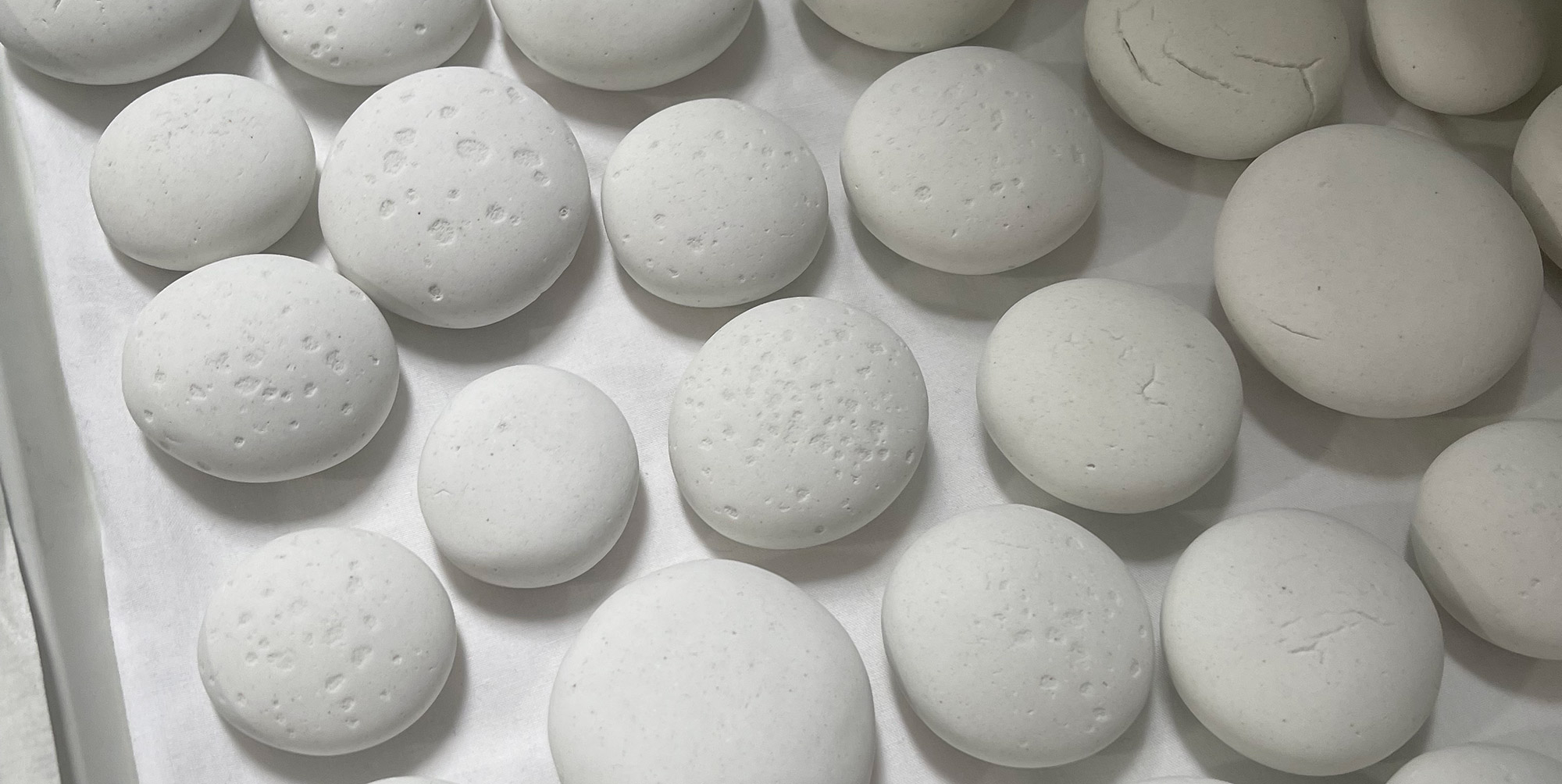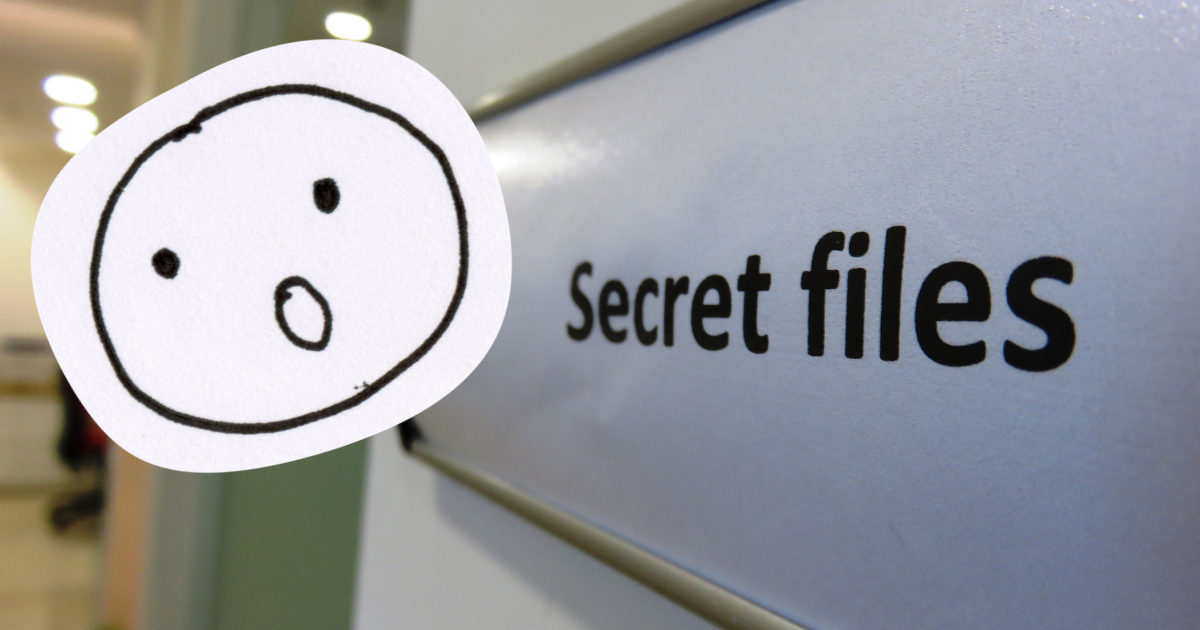What are Solidified Remains? Here’s How They’re Made and How to Talk About It
Chances are you’ve been asked by a family to offer up your explanation of what solidified remains actually are. If you haven’t yet, you might want to get prepared after Parting Stone’s successful Shark Tank appearance, which was viewed by upwards of 10 million people across multiple platforms.
How you respond to this can tell you a lot about how you understand what all goes into the creation of solidified remains. Another clue? Where in your funeral home you have displayed materials from Parting Stone, the company that introduced the concept of solidified remains in 2019.
“I see solidified remains sitting next to the ashes and glass products, and they ask why they aren’t selling,” says Justin Crowe, Parting Stone Founder and CEO. “And I say, because this is not a product. Funeral homes need to put solidified remains in the arrangement room and ask every family, ‘Would you like to receive ashes or stones following cremation?’ And if they do that, families will understand what it is and the value it brings.”
In typical start-up fashion, Justin Crowe has spent his first three-plus years at Parting Stone seeking investors, executing loans, applying for grants, and streamlining operations to make sure his pricing covers — at a bare minimum — his costs. If you watched Crowe’s April 7 pitch to a group of elite investors on ABC’s Shark Tank, you realized that Parting Stone’s introductory pricing hasn’t met that threshold.
Selling solidified remains
Of all of your duties as a deathcare professional, “selling” may be one of the most uncomfortable. It’s certainly one of the most sensitive, as the general public continues to bristle at the actual cost of funeral- and cremation-related products and services. Adding another service to your General Price List or product to your selection room can seem like just one more opportunity for families to complain about your pricing and sales pitch.
However, unlike the average consumer, you know what all factors into the pricing of your products and services. Maintaining an expertly-trained, 24-hour staff and expansive facilities isn’t cheap. Nevertheless, some funeral directors will still balk at the pricing of options like solidified remains.
Pricing particulars
One of the most ardent recommendations from the Shark panel was to raise the retail price of Parting Stone’s solidified remains. In fact, a price increase was something Crowe already had in the works, prior to his TV appearance.
“There were many unknowns when inventing a new form of remains over the last three years,” explains Crowe. “First, we had to prove the technology and process, then we had to prove there was a market, and now we need to make the business sustainable for the long term. The process costs more than we initially anticipated, but fortunately, we’ve found that solidified remains work as a premium option. As the Sharks quickly identified on the show, we were faced with the decision of keeping our pricing the same and going out of business, or raising the price to continue to offer our service to families for the long-term.”
The complexities and care involved in Parting Stone’s unique process has positioned solidified remains as a premium form of remains. But for the over 5,000 families the company has served since launching, the cost matches the value.
“Families are either hot or cold on Parting Stone, there is little middle ground,” says Milos Djordjevic, the owner of Caring Cremations in Chicago. “But the families that like solidified remains are obsessed with them and willing to pay a premium for that experience. Two families have already paid $1,500 for the service – our cremation price is $797.”
In typical start-up fashion, Justin Crowe has spent his first three-plus years at Parting Stone seeking investors, executing loans, applying for grants, and streamlining operations to make sure his pricing covers — at a bare minimum — his costs. If you watched Crowe’s April 7 pitch to a group of elite investors on ABC’s Shark Tank, you realized that Parting Stone’s introductory pricing hasn’t met that threshold.
Behind the scenes at Parting Stone
Not every funeral director or family will have the unique experience of a peek into what exactly goes into transforming cremains into the 40 to 80+ exquisitely unique, durable, distributable stones that result from the average-sized human. Recently, though, Crowe graciously invited Connecting Directors inside the Santa Fe, New Mexico-based Parting Stone lab for a tour and explanation of the highly-hands-on process that’s required to create solidified remains, and we couldn’t wait to share it with our readers.

In all, there are 11 steps, or work centers, that each set of cremains travels through during the transformation process. In the earliest days of Parting Stone, families could expect to receive their stones in about ten weeks. Today, though, thanks to always-evolving procedures and the addition of new time-saving equipment and automation, it takes only six weeks for cremains to proceed from the point the lab receives them in ash form to the day the solidified remains are shipped to a decedent’s loved ones.
Unlike the “cremation stones” that have arisen on Etsy and other craftmaker sites since Crowe created Parting Stone, legitimate solidified remains aren’t simply combined with or mixed into another medium to create a single rock-shaped, flat-bottomed lump. Parting Stone’s process that solidifies 100% of the cremated remains is part science (thanks to the technology Crowe developed with Los Alamos National Laboratory scientists) and part art. A majority of the Parting Stone staff, including Crowe, are in fact artisans, having practiced as painters, ceramicists, or sculptors.
A true labor of love
Between the initial receiving and final shipping stages of the Parting Stone process are nine other work centers. Although the exact process is proprietary, we can share that, essentially, the remains do not remain in ash form for long.
As remains proceed through the lab, a series of time- and attention-intensive steps and secret solutions literally transform the ashes into a different consistency and form. Most of these steps require a prescribed waiting time before moving on to the next phase, and all of the stages demand that a team member closely monitor the status of the cremains, as each set has proven to have characteristics that are just as unique as the individual themselves. Each team member is trained to recognize and address any idiosyncrasies discovered during the inspection process.
After Parting Stone’s lab technicians form the remains into the company’s signature shapes, the stones are hardened in a kiln overnight. Again, the timing of this step is highly individualized based on a number of stone-specific factors. Washing, smoothing, and polishing are the final touches before the stones are placed in a beautifully-presented package for shipping.
Chain, chain, chain … of custody
Before Parting Stone even produced its first set of solidified remains, Crowe envisioned a customized cataloging and tracking process that would provide a detailed chain-of-custody log and provide families insight into the exact location of their loved one within the lab. Sure enough, within each of the company’s 11 work centers are several individual bar-coded transfer points — each of which is logged into the company’s software.
“One of the most nerve-wracking things about starting this company was the reality that handling and shipping cremains was not like an Amazon order where if you accidentally ship it to the wrong person, it’s fine and you just ship another one,” Crowe told Connecting Directors in 2021. “That’s why we put so much energy and significant resources into setting up and continuously improving our chain of custody.”

Parting Stone’s chain of custody consists of a custom-designed digital tracking system that relies on individual bar codes for each decedent in the company’s care. As the decedent moves through the solidification process, they pass through 23 transfer points; five of them send automatic emails to the funeral home when the process in that workcenter begins.

Finally, 16 cameras throughout the 8,000-square foot laboratory record each step of the process and store footage for up to six months. If there is any concern about the integrity of the completed solidified remains Parting Stone can easily generate a detailed chain of custody report for the family, showing the decedent’s entire journey through the process.
The bottom line
Suffice to say, customized programs and proprietary processes — especially when properly executed and maintained — aren’t cheap. Neither is dedicating overhead and labor costs to a 12-hour-a-day, seven-day-a-week work schedule where employees are empowered and encouraged to pay attention to intricate (yet important) details. Parting Stone may even restart a process completely if the output doesn’t meet the company’s strict quality control measurements intended to provide the best quality experience for families.
Justin Crowe plans to put most of Parting Stone’s latest funding — including $400,000 from newest investors Kevin O’Leary and Lori Greiner of Shark Tank fame — toward specialized equipment that will further streamline or automate the work performed by his dedicated team. He’s also listening intently to and implementing the advice O’Leary and Greiner are extending, as he recognizes and appreciates the incredible value their years of experience bring to the table — including their suggestions on pricing.
Like many of the families you serve, O’Leary and Greiner seem to understand what makes Parting Stone a special company full of special people. They believe solidified remains can have a significant role in the deathcare space — and deserve to hold a rightful place in your arrangement room.
So the next time someone asks you about solidified remains (or compares them to cremation jewelry), perhaps you can now better explain exactly what Parting Stone’s service is — and, more importantly, is not.
In typical start-up fashion, Justin Crowe has spent his first three-plus years at Parting Stone seeking investors, executing loans, applying for grants, and streamlining operations to make sure his pricing covers — at a bare minimum — his costs. If you watched Crowe’s April 7 pitch to a group of elite investors on ABC’s Shark Tank, you realized that Parting Stone’s introductory pricing hasn’t met that threshold.
Cover image: Solidified remains of animals donated by Santa Fe-area veterinary hospitals and shelters.




